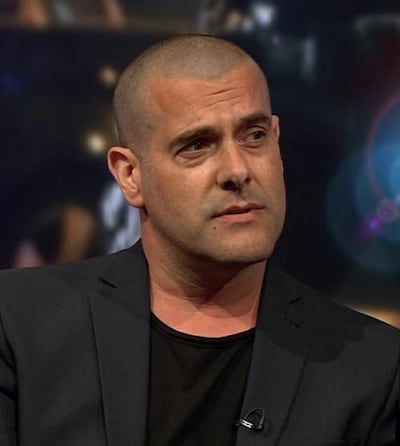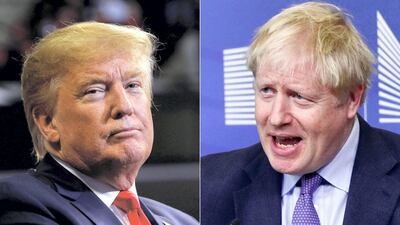Western political leaders should “look long and hard” at the rhetoric they use to prevent their words fuelling violent extremism, a leading counter-terrorism expert has said.
William Baldet, a coordinator of the UK Government’s counter-terrorism strategy, said politics in the West had become “increasingly polarised” and called on politicians to remember the “huge responsibility” they wielded.
His comments at a lecture in Abu Dhabi came after he was asked about UK Prime Minister Boris Johnson’s characterisation of Muslim dress, after he said women in burqas “look like letter boxes”, and US President Donald Trump’s so-called ‘Muslim ban’ policy, and their potential impact in the fight against extremism.
Mr Trump has previously made a string of inflammatory remarks about Muslims, including that “Islam hates us”, while Mr Johnson has repeatedly refused to apologise for his controversial “letter boxes” remark, made in a newspaper column last year.
Both leaders have been accused of emboldening racists with their words.
“Politics certainly across the Western world has become incredibly polarised over the last five or six years,” said Mr Baldet, a senior fellow at the Centre for Analysis of Radical Right, citing Mr Trump’s election and a widening gulf in UK politics.
“So I agree that all politicians need to be very careful about the language that they use. All politicians, they have a huge responsibility and people do listen to their words, they look to them as leaders. So I think all politicians need to look very long and hard at the language that they use, of all political persuasions.”
In a wide-ranging discussion, he also said that white supremacists had learned from Isis in their recruitment strategies and that there were striking similarities between the people taken in by both Islamic and far right extremist ideologies.
Isis had “changed the landscape”, with its “weaponisation of social media”, he said.
UK citizens travelled to parts of Iraq and Syria previously controlled by Isis for a wide range of reasons, from those who initially wanted to help with a humanitarian crisis to others who were part of an “Xbox Generation” who were radicalised after recruiters “spoke the language” of the Call of Duty video game.

“The reason people were travelled were varied, but always there were underlying issues that were more important than the ideology,” Mr Baldet said. “The individuals we see who are drawn to Daesh, and the underlying vulnerabilities they have, almost exactly replicate the issues we’re seeing in the right wing terrorism space in the UK.
“The same disillusionment, the same dispossession, the same lack of a sense of belonging, mistrust in government. All of same issues, and mental health challenges as well, we’re seeing in the right wing terrorism space as we’re seeing in the Daesh terrorism space."
He added: “I don’t know what has gone wrong globally, but to have so many young people so inherently connected to the rest of the world through social media feels so desperately lonely and detached from the rest of the world around them is not a good place to be in.
“There’s something fundamentally wrong when the majority of 15 to 25-year-olds believe everything in a conspiracy, the world is conspiring against them, and they’re fighting this battle on their own. These extremist movements come along and say ‘if you want to belong, you can belong here’.”
Another similarity was both Islamist and right wing extremist groups, even those that claimed to be non-violent, were both arguing that violence is a “logical conclusion” of members of different races and religions mixing, he said.
Mr Baldet cited the Generation Identity group, which he said had claimed the Christchurch mosque shootings was an “inevitable conclusion” of multiculturalism, and advocates the “great replacement” conspiracy theory whereby white populations are gradually replaced in their traditional homelands by other ethnic groups.
Putting forward potential solutions, he said a multi-level approach was needed, including an education programme that centred around discussion of difficult issues rather than attempting an “indoctrination” approach of a particular world view.
He also painted a gloomy picture of the prospects of both Islamist and far-right extremist ideology becoming less appealing to potential recruits in the short term.

“It feels to me like the problem is getting worse,” he said.
“I’d like to be an optimist and say I think things will get better, but I think for the short term, definitely not. I think we’re going to see an increase.
“Societies, certainly around Western Europe and the United States, I think are becoming more polarised. That polarisation fuels extremism, I’m a firm believer in that, because it creates an instability that extremists will want to exploit.”

